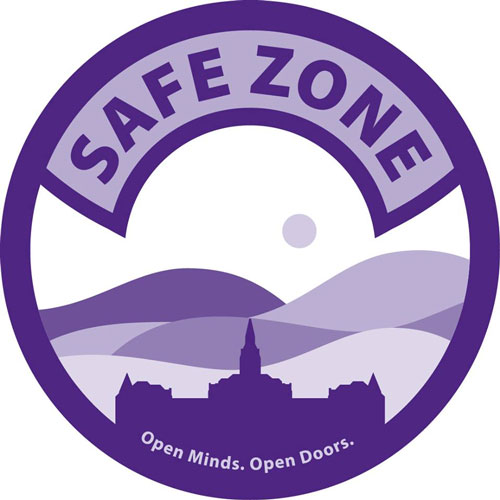June 5, 2020
Advanced Safe Zone Trainings for Sexuality and Gender Identity

Safe Zone at K-State will continue introductory and advanced trainings during the summer break.
The Safe Zone program, in the Department of Diversity and Multicultural Student Affairs, invites anyone who has completed a Safe Zone Introductory Training to take the Safe Zone Advanced Training on Sexuality and Gender Identity Introduction from 1-3 p.m. on Tuesday, June 9, via Zoom.
For this training, Safe Zone has paired up with its partners in the LGBT Resource Center to offer an advanced training for faculty, staff, student and community members who wish to learn more about sexuality and gender identities. The link will be sent out to everyone registered for the Safe Zone event the night before the event.
Register for the June 9 Safe Zone Advanced Training on Sexuality and Gender Identity.
In addition, there also is a Safe Zone Advanced Training on Transgender Language and Competency offered by doctoral candidate Sam Sharpe from 10 a.m. to noon Wednesday, June 10, also via Zoom. These trainings are typically scheduled for two hours to give participants the opportunity for questions and discussion. The time frame is to ensure that everything is covered and everyone's questions are answered.
Register for the June 10 SafeZone Advance Training on Transgender Competency and Language.
Safe Zone continues to be part of Kansas State University's efforts to create an open and affirming campus since the 1970s. Safe Zone was created to help those facing sexual orientation discrimination. Revitalization of the initiative in 2002 created a more comprehensive and ever-evolving Safe Zone effort to fit the needs of current K-State community members. Allies become educated to help those coming from a variety of backgrounds and identities with needs concerning exclusionary acts like intimidation, micro and macro aggressions, discrimination, LGBTQ-related concerns or sexual violence.
For more information, contact Debra Bolton, director of intercultural learning and academic success, at dbolton@k-state.edu; or Brandon Haddock, coordinator of the LGBT Resource Center, at bhaddock@k-state.edu.
